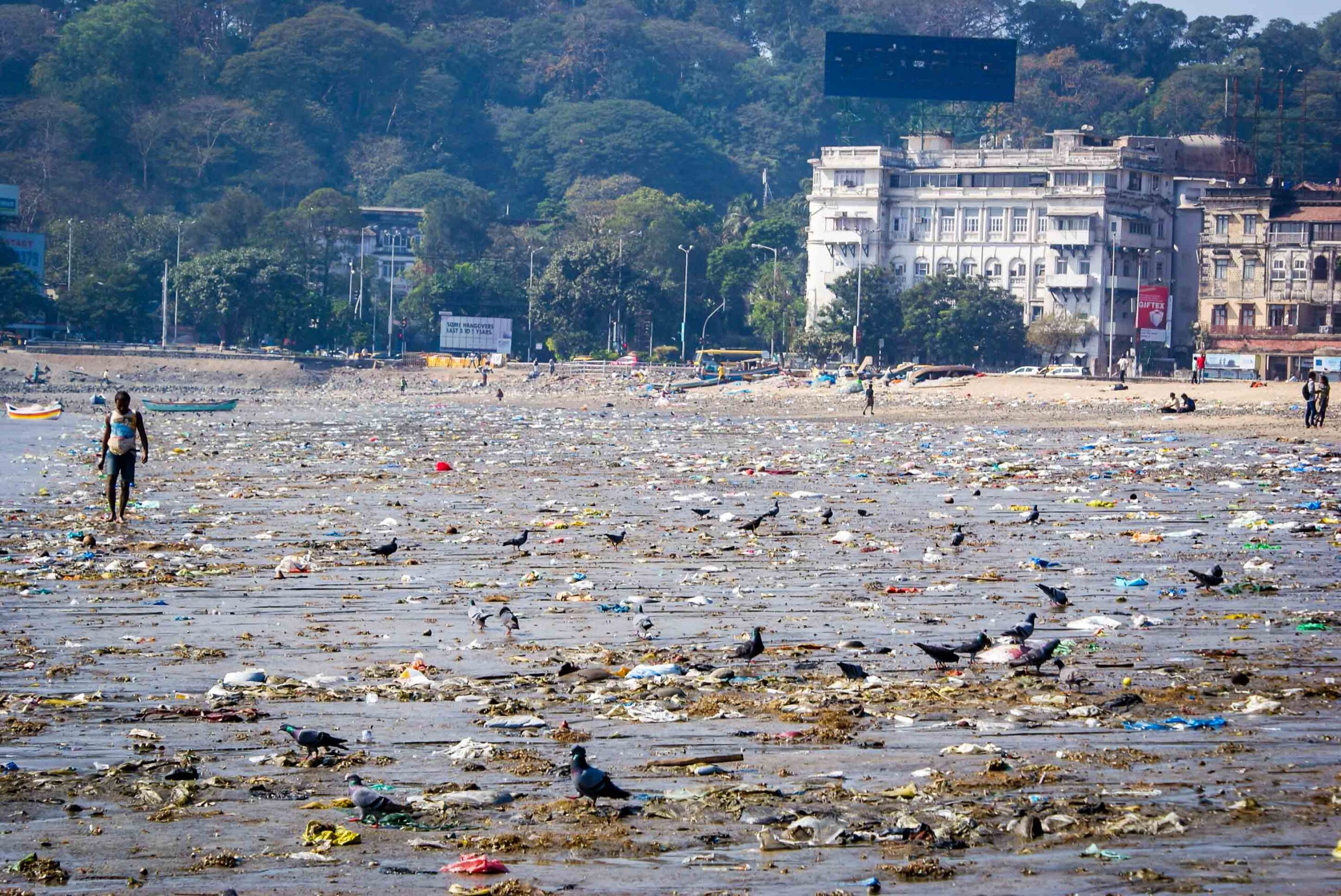The torrential rains of August 29th brought the entire city of Mumbai to a standstill. The trains were suspended, the roads were waterlogged, buses were not functional and hundreds of commuters were stranded on the stations and their workplaces. The weather conditions got better in the wee hours of the following morning when the water started receding. Who knew that one of the bigger challenges awaited the BMC after the recession. The high tides in the ocean on Tuesday brought with it all the sewage and waste dumped into the sea, to the shore. The waste mainly constituted by thermocol, plastic bags and polythene wrappers; it reached the roads and the train tracks. The main reason for the trains of the harbour and central lines to not be functional even after 24 hours of dry weather was this untreated, abandoned waste on railway tracks.
According to an Indian Express report, 28000 BMC workers cleared 9600 metric tonnes of waste from the city after it flooded and were taken to three dumping grounds in the city. Waste generated in Mumbai on a daily basis is 7500 metric tonnes; the balance was brought in by the ocean water. It was reported that the areas worst hit were close to Mithi river, where sludge produced by the overflow of water made the roads very unsafe and slippery.
That plastic is an enemy of the environment, is common knowledge. Plastic has also, however, become an indispensable part of our daily life. Over the past few decades, environmentalists have insisted on more awareness regarding the harm of using plastic and polyethene. To a great extent, the message has been communicated. That is to say that people know plastic is harmful, irrespective of whether or not they use it themselves. Retailers like Westside, Lifestyle, Pantaloons started charging for plastic bags to discourage the use of polythene bags.
Although it has been seen in reports that India stands in a much better place with respect to the use of plastic than the rest of the world. According to a report by Wealthy Waste, a website about waste management, India recycles 60% of its plastic, which is more than the world average of 22%. India’s per capita per year consumption of plastic is 6-7 % as opposed to the world’s 24%.
But there is still a very long road ahead, in terms of elimination of plastic completely. The worst affected by the use of plastic are marine animals. Millions of tonnes of waste in all forms are present in the ocean, but will we only care about it during high tides? To keep their surroundings and their city clean is every citizen’s responsibility. And the neglect of the citizens towards that responsibility is strewn across the beaches of Mumbai. But since awareness already exists, the only thing required is action. Many cities in northern India have imposed a ban on polyethene bags. It is easier said than done, but it is not impossible to achieve a plastic free environment.
Regards,
The CSR Journal Team
Subscribe


